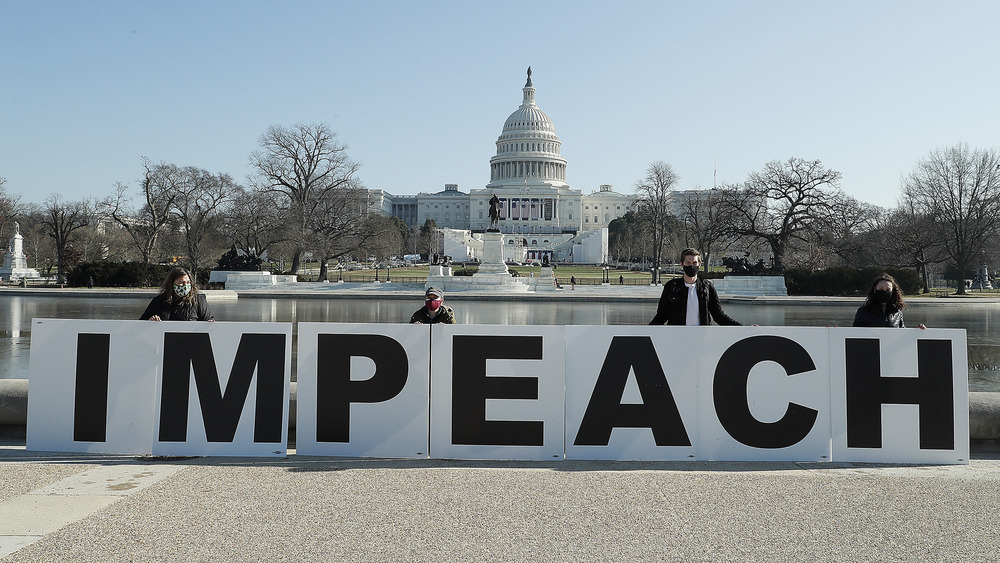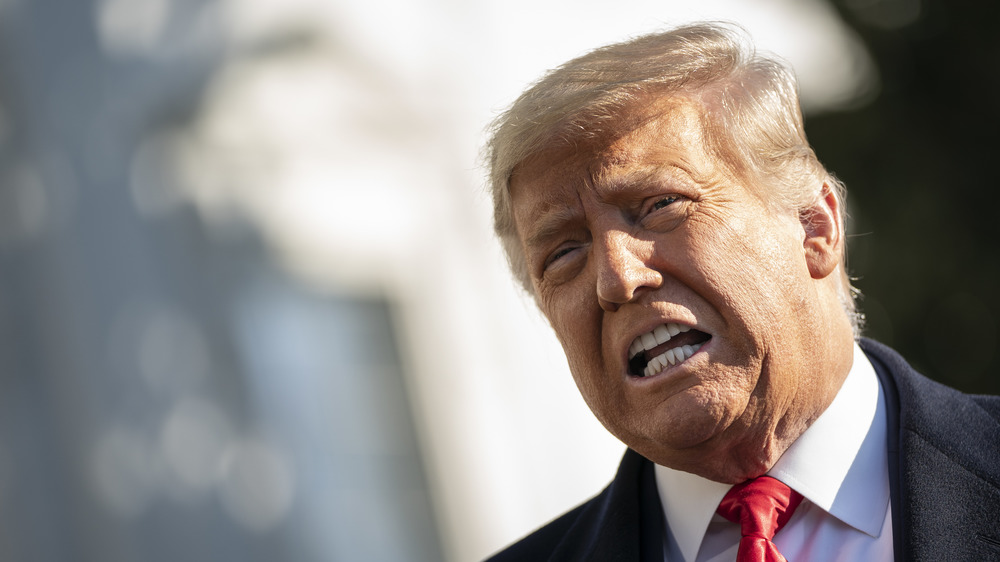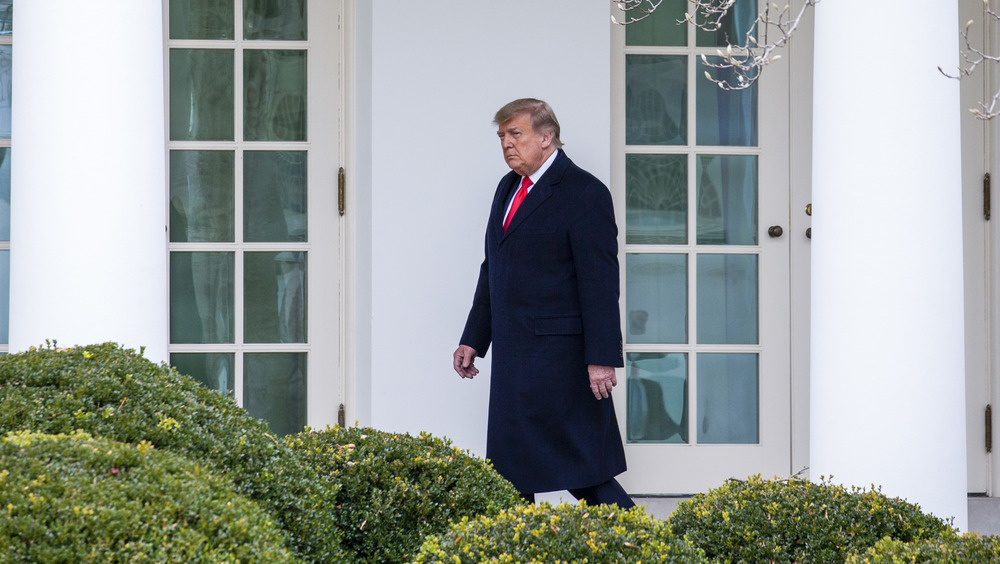Rules President Trump Will Have To Follow If He Gets Impeached Again
When Vice President Mike Pence made it clear that he wouldn't move to strip President Donald Trump of his powers, he also paved the way for Trump to become the first president in U.S. history to be impeached twice (via The New York Times). If we go by comments that have come out of the House of Representatives in the days before the House debate and vote to impeach, the motion is certain to pass with the support of the Democratic caucus, as well as a few members of the GOP including Wyoming Rep and third-ranked GOP House member Liz Cheney (via USA Today).
As with the first impeachment, Trump's case has come about because the president committed what the House has seen fit to denounce as a "high crime or misdemeanor." But unlike the first time, where he was impeached because he exerted pressure on the president of Ukraine, Trump now faces a single charge: "incitement of insurrection," over his false claims that he had won the election, and by calling on his supporters to "fight like hell," leading his supporters to try and keep congress from certifying the results of the November 3 elections (via CNN).
If he is impeached again, Trump must submit to a Senate trial
GOP House representatives are saying there is no point in impeaching Donald Trump because the country may not see the Senate begin trial until President-elect Joe Biden take office on January 20, and that an impeachment would further divide the country (via USA Today).
But in an op-ed for The Washington Post, Professors of law Brian Kalt of Michigan State University and Frank Bowman of the University of Missouri say that impeaching Trump now wouldn't be a problem because they say there is room in the Constitution allows for what they call "late impeachability." Under these circumstances, an impeached official would be tried by the Senate after they leave office.
Kalt and Bowman cite two precedents for late impeachments and post-term trials. The first impeachment was carried out in 1798 and involved Senator William Blount; the second took place in 1876 and involved William Belknap, who stepped down just as he was impeached. So even if he is no longer president, Trump will still have to defend himself in a trial before the Senate. It may make Trump feel better to know they were eventually acquitted, but both needed to go through due process first.
Trump could lose more than benefits if he's impeached again
If Donald Trump is convicted by the Senate, he could lose some of the benefits he would have been entitled to under the Former President's Act, which gives him access to a travel allowance, Secret Service protection, a pension, office space, and staff (via WUSA9). But there is more at stake if the second impeachment is upheld by the Senate. Under the article of impeachment, Trump would specifically be banned from holding office under the 14th Amendment of the Constitution, which "prohibits any person who has 'engaged in insurrection or rebellion against' the United States" from holding office (via CNN).
More importantly, Kalt and Bowman have opined that "We also believe that, while impeaching someone who has left office is usually pointless, in some cases — perhaps including Trump's — it may serve important national interests." And by that they mean taking away Trump's right to hold public office. Given that Trump has repeatedly said he wants to make a bid for the White House in 2024, that is likely part of the reason why a second impeachment is on the table (via The Washington Post).
What's more, if Donald Trump is found guilty by the Senate, there is one more privilege he will likely lose — the power to pardon himself or anyone who might have been involved in the January 6 violence (via The Washington Post). It is a matter Congress will have to decide.


